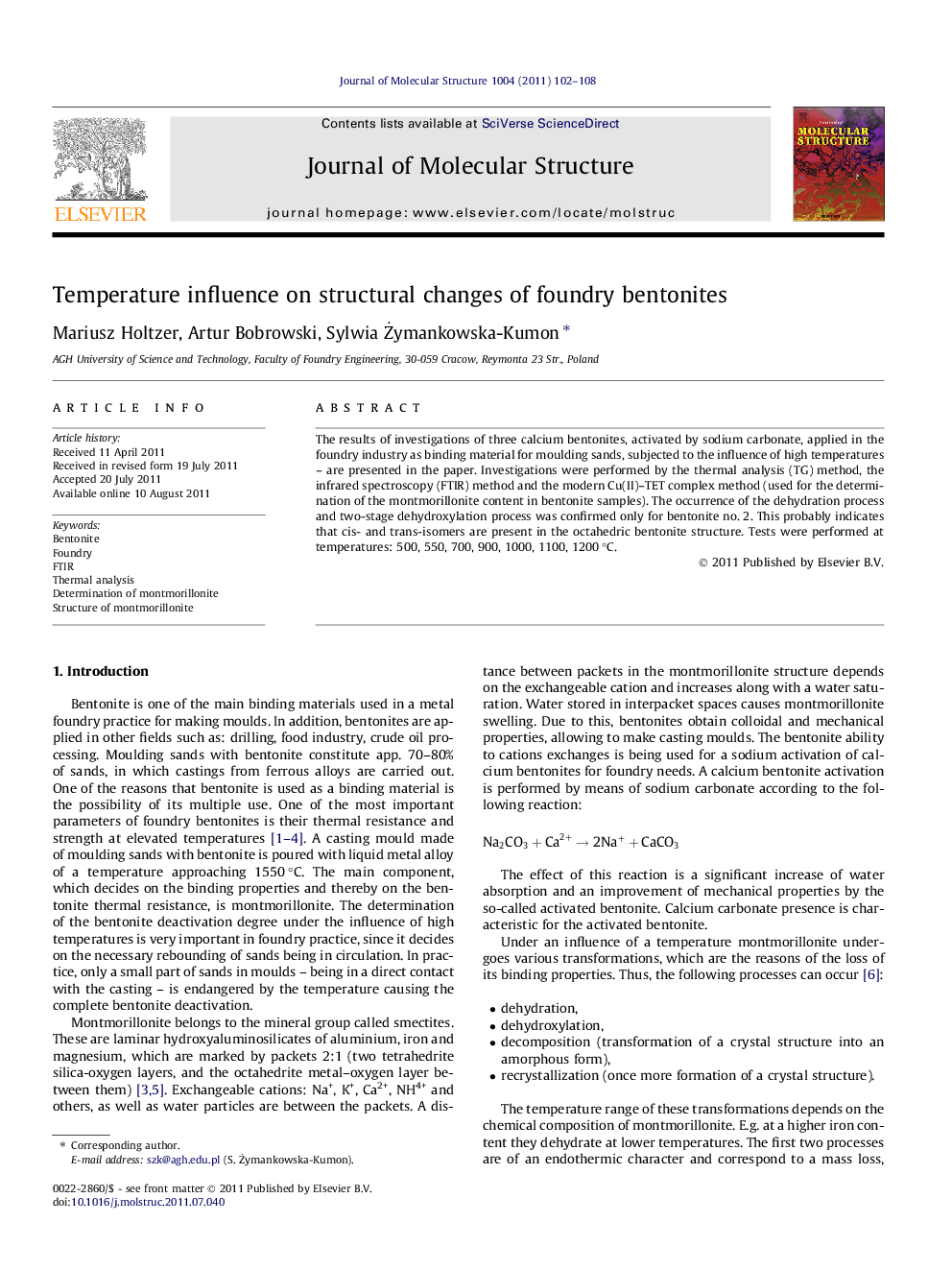| Article ID | Journal | Published Year | Pages | File Type |
|---|---|---|---|---|
| 1410191 | Journal of Molecular Structure | 2011 | 7 Pages |
The results of investigations of three calcium bentonites, activated by sodium carbonate, applied in the foundry industry as binding material for moulding sands, subjected to the influence of high temperatures – are presented in the paper. Investigations were performed by the thermal analysis (TG) method, the infrared spectroscopy (FTIR) method and the modern Cu(II)–TET complex method (used for the determination of the montmorillonite content in bentonite samples). The occurrence of the dehydration process and two-stage dehydroxylation process was confirmed only for bentonite no. 2. This probably indicates that cis- and trans-isomers are present in the octahedric bentonite structure. Tests were performed at temperatures: 500, 550, 700, 900, 1000, 1100, 1200 °C.
► The important parameter of foundry bentonites is strength at elevated temperatures. ► The bentonite deactivation degree decides on the necessary rebounding of sands. ► After heating to a 500 °C the montmorillonite content practically did not change. ► After holding at a 700 °C for 1 hour the montmorillonite content was practically zero.
